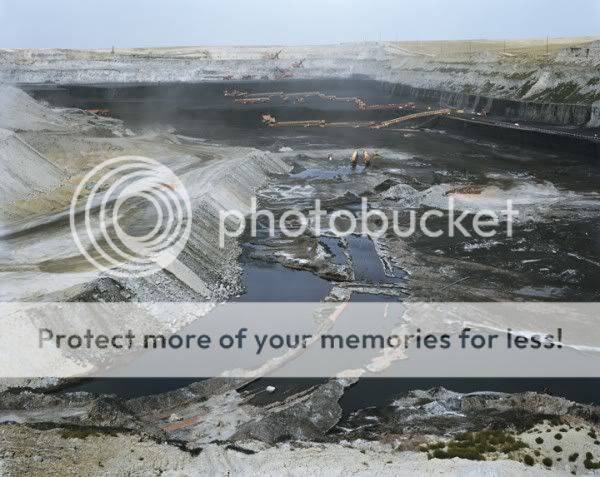The year climate science was redefined | Mike Hulme | Environment | guardian.co.uk
The year climate science was redefined
The 12 months since the leaking of emails written by climate change scientists have seen major shifts in environmental debate
One year ago tomorrow more than a thousand emails between scientists in the Climatic Research Unit at the University of East Anglia and their international colleagues were uploaded, unauthorised, on to a Russian FTP server. The story immediately went viral online, with lurid accusations of deception and illegality, and was soon picked up by the mainstream media.
How has the climate change story changed since then? And how important was "climategate" in catalysing this change? I believe there have been major shifts in how climate science is conducted, how the climate debate is framed and how climate policy is being formed. And I believe "climategate" played a role in all three.
It is difficult to re-capture or even quite believe the cultural and political mood around climate change in the autumn of 2009. There was a rising wave of expectation that the world leaders gathering for the climate change summit in Copenhagen in December would change the world and the climate for ever.
People were fasting for climate justice, Gordon Brown was saying that Copenhagen was the last chance to reach a climate deal and there were calls for Obama to play decisively his climate card. No one 12 months ago was calling for a review of the practices of the Nobel Prize-winning Intergovernmental Panel on Climate Change, the United Nations' main climate science assessment panel. Contrarian voices, while loud, were not really being listened to. This inflated optimism had to burst and "climategate" proved to be the pin.
So, 12 months later, I suggest three things of particular significance have altered.
First, there has been a discernible change in some of the practices of climate science. Most obvious has been an opening up and re-analysis of some of the core observational datasets which underpin the detection of climate change trends. The Met Office is leading a thorough international re-analysis of 150 years of land and marine temperature data. Calls for greater transparency around scientific analysis have boosted the embryonic project of the Climate Code Foundation and its efforts to make all climate computer code open-source.
The Inter-Academy Council review has recommended some significance changes in the way the IPCC assesses knowledge, in particular how it documents areas of both agreement and disagreement in the underlying science. And the Royal Society, reflecting this new mood, has issued a new guide to climate change science which separates "aspects of wide agreement", "aspects of continuing debate" and "aspects not well understood". The objective of these reflexive responses in science has been to demonstrate transparency and rebuild trust.
Second, there has been a re-framing of climate change. The simple linear frame of "here's the consensus science, now let's make climate policy" has lost out to the more ambiguous frame: "What combination of contested political values, diverse human ideals and emergent scientific evidence can drive climate policy?" The events of the past year have finally buried the notion that scientific predictions about future climate change can be certain or precise enough to force global policy-making.
The meta-framing of climate change has therefore moved from being bi-polar that either the scientific evidence is strong enough for action or else it is too weak for action to being multi-polar that narratives of climate change mobilise widely differing values which can't be homogenised through appeals to science. Those actors who have long favoured a linear connection between climate science and climate policy spanning environmentalists, contrarians and some scientists and politicians have been forced to rethink. It is clearer today that the battle lines around climate change have to be drawn using the language of politics, values and ethics rather than the one-dimensional language of scientific consensus or lack thereof.
Third, and perhaps most dramatically, has been the fragmentation of climate policy-making. It has been remarkable how quickly faith has evaporated in the multilateral process of the UNFCCC. Its new head, Christiana Figueres, concedes that "there won't be a final agreement on climate change in my lifetime".

 The post-mortem of COP15 showed how implausible the FAB deal wanted by NGOs Fair, Ambitious and Binding really was. The US Senate screwed Obama's cap-and-trade bill. And no one believes that COP16 in Cancun later this month will be any different.
The post-mortem of COP15 showed how implausible the FAB deal wanted by NGOs Fair, Ambitious and Binding really was. The US Senate screwed Obama's cap-and-trade bill. And no one believes that COP16 in Cancun later this month will be any different.
Instead, there is a new pragmatism in the air. This pragmatism has many colours and shades, but at the heart of it are three principles:
an emphasis on the climate co-benefits of other policy innovations, such as those on health and poverty
a necessity to drive forward new publicly-funded investments in low-carbon energy technology
the cultivation of multi-level polycentric institutions and partnerships through which policy innovation may occur, rather than relying exclusively on the UN process
These three changes are reflective of much larger cultural and political struggles regarding knowledge and power in the contemporary world which will become more salient during the next decade: the challenges to the norms of science coming from deep social and digital connectivity; the struggle to establish the appropriate cultural authority for science; and the struggles to bring democratic accountability to emergent international and global forms of governance. The shifts we are seeing around climate change are therefore symptomic of these wider struggles.
The 12 months since 17 November 2009 have shown brutally that the social, political and cultural dynamics at work around the idea of climate change are more volatile than the slowly changing and causally entangled climate dynamics of the Earth's biogeophysical systems. Furthermore, supercomputers may mean climate science can attempt century-long predictions but that does not mean political, cultural and other unpredictable changes will not be as important.
Another IPCC assessment of scientific knowledge in four years' time is not going to make policy-making around climate change any easier. Indeed, the chances are that with scientific uncertainties and complexities about the future proliferating, and with new policy strategies such as climate geo-engineering entering the fray, further policy fragmentation around climate change is inevitable. But if such fragmentation reflects the plural, partial and provisional knowledge humans possess about the future then climate policy-making will better reflect reality. And that, I think, may be no bad thing.
Mike Hulme is professor of climate change in the School of Environmental Sciences at the University of East Anglia, Norwich, UK.
And I have to laugh...........still the nuts come in here and post up the same stupid ass links over and over and over and over and over and over and over and over............as if meant anything.
















The year climate science was redefined
The 12 months since the leaking of emails written by climate change scientists have seen major shifts in environmental debate
One year ago tomorrow more than a thousand emails between scientists in the Climatic Research Unit at the University of East Anglia and their international colleagues were uploaded, unauthorised, on to a Russian FTP server. The story immediately went viral online, with lurid accusations of deception and illegality, and was soon picked up by the mainstream media.
How has the climate change story changed since then? And how important was "climategate" in catalysing this change? I believe there have been major shifts in how climate science is conducted, how the climate debate is framed and how climate policy is being formed. And I believe "climategate" played a role in all three.
It is difficult to re-capture or even quite believe the cultural and political mood around climate change in the autumn of 2009. There was a rising wave of expectation that the world leaders gathering for the climate change summit in Copenhagen in December would change the world and the climate for ever.
People were fasting for climate justice, Gordon Brown was saying that Copenhagen was the last chance to reach a climate deal and there were calls for Obama to play decisively his climate card. No one 12 months ago was calling for a review of the practices of the Nobel Prize-winning Intergovernmental Panel on Climate Change, the United Nations' main climate science assessment panel. Contrarian voices, while loud, were not really being listened to. This inflated optimism had to burst and "climategate" proved to be the pin.
So, 12 months later, I suggest three things of particular significance have altered.
First, there has been a discernible change in some of the practices of climate science. Most obvious has been an opening up and re-analysis of some of the core observational datasets which underpin the detection of climate change trends. The Met Office is leading a thorough international re-analysis of 150 years of land and marine temperature data. Calls for greater transparency around scientific analysis have boosted the embryonic project of the Climate Code Foundation and its efforts to make all climate computer code open-source.
The Inter-Academy Council review has recommended some significance changes in the way the IPCC assesses knowledge, in particular how it documents areas of both agreement and disagreement in the underlying science. And the Royal Society, reflecting this new mood, has issued a new guide to climate change science which separates "aspects of wide agreement", "aspects of continuing debate" and "aspects not well understood". The objective of these reflexive responses in science has been to demonstrate transparency and rebuild trust.
Second, there has been a re-framing of climate change. The simple linear frame of "here's the consensus science, now let's make climate policy" has lost out to the more ambiguous frame: "What combination of contested political values, diverse human ideals and emergent scientific evidence can drive climate policy?" The events of the past year have finally buried the notion that scientific predictions about future climate change can be certain or precise enough to force global policy-making.
The meta-framing of climate change has therefore moved from being bi-polar that either the scientific evidence is strong enough for action or else it is too weak for action to being multi-polar that narratives of climate change mobilise widely differing values which can't be homogenised through appeals to science. Those actors who have long favoured a linear connection between climate science and climate policy spanning environmentalists, contrarians and some scientists and politicians have been forced to rethink. It is clearer today that the battle lines around climate change have to be drawn using the language of politics, values and ethics rather than the one-dimensional language of scientific consensus or lack thereof.
Third, and perhaps most dramatically, has been the fragmentation of climate policy-making. It has been remarkable how quickly faith has evaporated in the multilateral process of the UNFCCC. Its new head, Christiana Figueres, concedes that "there won't be a final agreement on climate change in my lifetime".


 The post-mortem of COP15 showed how implausible the FAB deal wanted by NGOs Fair, Ambitious and Binding really was. The US Senate screwed Obama's cap-and-trade bill. And no one believes that COP16 in Cancun later this month will be any different.
The post-mortem of COP15 showed how implausible the FAB deal wanted by NGOs Fair, Ambitious and Binding really was. The US Senate screwed Obama's cap-and-trade bill. And no one believes that COP16 in Cancun later this month will be any different.Instead, there is a new pragmatism in the air. This pragmatism has many colours and shades, but at the heart of it are three principles:
an emphasis on the climate co-benefits of other policy innovations, such as those on health and poverty
a necessity to drive forward new publicly-funded investments in low-carbon energy technology
the cultivation of multi-level polycentric institutions and partnerships through which policy innovation may occur, rather than relying exclusively on the UN process
These three changes are reflective of much larger cultural and political struggles regarding knowledge and power in the contemporary world which will become more salient during the next decade: the challenges to the norms of science coming from deep social and digital connectivity; the struggle to establish the appropriate cultural authority for science; and the struggles to bring democratic accountability to emergent international and global forms of governance. The shifts we are seeing around climate change are therefore symptomic of these wider struggles.
The 12 months since 17 November 2009 have shown brutally that the social, political and cultural dynamics at work around the idea of climate change are more volatile than the slowly changing and causally entangled climate dynamics of the Earth's biogeophysical systems. Furthermore, supercomputers may mean climate science can attempt century-long predictions but that does not mean political, cultural and other unpredictable changes will not be as important.
Another IPCC assessment of scientific knowledge in four years' time is not going to make policy-making around climate change any easier. Indeed, the chances are that with scientific uncertainties and complexities about the future proliferating, and with new policy strategies such as climate geo-engineering entering the fray, further policy fragmentation around climate change is inevitable. But if such fragmentation reflects the plural, partial and provisional knowledge humans possess about the future then climate policy-making will better reflect reality. And that, I think, may be no bad thing.
Mike Hulme is professor of climate change in the School of Environmental Sciences at the University of East Anglia, Norwich, UK.
And I have to laugh...........still the nuts come in here and post up the same stupid ass links over and over and over and over and over and over and over and over............as if meant anything.














Last edited:









